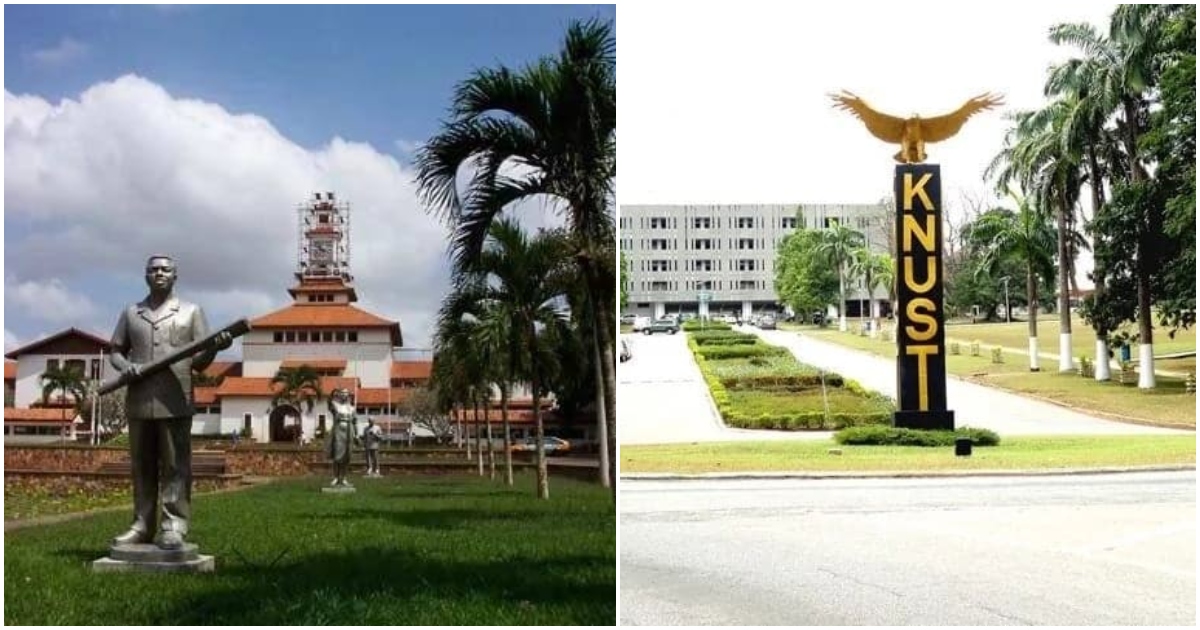Unaccredited Courses at UG, KNUST saga: Experts Absolve Universities of Blame
Two of Ghana's top universities, the University of Ghana, Legon, and the Kwame Nkrumah University of Science and Technology (KNUST), recently grabbed headlines for running courses without the required accreditation. The Auditor-General's 2022 report on public institutions in Ghana said the two universities were running a total of over 700 programmes that had flouted legal requirements. The revelation created an uproar among Ghanaians. YEN.com.gh speaks to education experts about the implication and the way forward.
New feature: Check out news exactly for YOU ➡️ find “Recommended for you” block and enjoy!
Accreditation of university programmes is essential. No matter how long a university has existed or the brains they have produced, accreditation regimes compel institutions to uphold high academic standards. Also, accreditation enables university programmes to be reviewed periodically (in Ghana, averagely, every four years) to serve society and industry's needs better.

Read also
Economic crisis: 'Bear with us in these difficult times; your August salaries will delay' – PBC tells staff
The erstwhile National Council for Tertiary Education (NCTE) and the National Accreditation Board (NAB) have been merged under a new Education Regulatory Bodies Act, 2020 (Act 1023) to form the Ghana Tertiary Education Commission (GTEC) and mandated to head Ghana's accreditation regime.

Source: UGC
According to the Centre for Social Justice's education expert, Nii Armah Addy, accreditation, when appropriately done, scrutinises the relevance of the course content to industry and academia.
"The accreditation institution also looks at the lecturers. They will look into the qualification of the lecturers of the programmes because lecturers must be proven to have the experience to teach the courses.
PAY ATTENTION: Enjoy reading our stories? Join YEN.com.gh's Telegram channel for more!
"Then they look at facilities that would be used to run the courses. If it is a science-based course, then the accrediting entity would want to know if there are requisite laboratories and materials, for instance," he explained to YEN.com.gh.
A thorough accreditation process is also expected to look at the availability of lecture rooms, libraries and other facilities.
Reaccreditation carried out four to five years after the programme has been running allows for an evaluation of the relevance of the course to the industry and the status of the critical facilities.
"Sometimes after the four or five years, the lecturers may have left, so the accrediting entity wants to ensure that the programme still has the facilities and lecturers to enable it run properly," Nii Armah Addy explained again.
What The Auditor-General Said About KNUST And UG Academic Programmes
Auditor-General, Johnson Akuamoah Asiedu, presented a report dated June 1, 2022, to the speaker of Parliament, Mr Alban Bagbin, where he cited two of Ghana's top universities for breaching accreditation regulations.
The auditor-general noted that the University of Ghana ran 374 academic programmes unaccredited by the Ghana Tertiary Education Commission (GTEC).
Of the 374, 14 were diploma programmes, 80 were undergraduate programmes, 213 were postgraduate programmes, and 67 were PhD programmes.
At the Kwame Nkrumah University of Science and Technology (KNUST), the audit of public tertiary institutions revealed that "out of the 360 programs run by the university, only 61 have been accredited, 190 sent to National Accreditation Board (NAB) for accreditation and reaccreditation with 109 yet to be sent to NAB for accreditation."
The report recommended that the management of the two universities cease running the programmes that are not accredited or whose accreditation certificates had expired until they are certified or renewed to avoid sanctions by NAB.
The auditor-general also asked the management of the two institutions to "liaise with Ghana Tertiary Education Commission (GTEC) to take retrospective accreditations to cover all the non-accredited certificates issued to students."
UG, KNUST Accreditation Problem Points To Institutional Failure

While Ghana's top public universities are taking the flak for running courses needing accreditation and reaccreditation, the accrediting institutions have also come under the spotlight for failing their mandate.
Peter Anti Partey, the executive director of the Institute for Education Studies (IFEST), said the situation results from a more significant national problem of an efficient accreditation regime coupled with an ongoing re-adjustment process.
"The law was changed. Parliament passed the Educational Regulation Law. Before this law was passed, there were no bodies that the universities could send their documents to [for accreditation]," he said.
He also said NAB is a small institution, lacking the relevant workforce and resources to deliver effectively on its mandate.
"They don't have the requisite staff. So they fall on professionals from the universities and other institutions to help them do the accreditation. And if you see the number of programmes ran by these institutions…there a lot of them and the accreditation process is very cumbersome," he said.
The IFEST boss said the accreditation conundrum, while unfortunate, "is not very fatal." According to Mr Partey, the universities have internal mechanisms that check the validity of programmes that they run.
"After universities design their programmes, they go through the faculty, college then the academic board and at all these stages, the programme is reviewed. They take a critical look and assess the validity and potency of the programme to meet the needs of the university and the whole country," he said.
What Now For Students With Certificates In Courses Needing Re-Accreditation?
CSJ's Nii Armah Addy, whose experience in tertiary education spans many years, has said because many of the programmes listed need reaccreditation, there is no cause for alarm. He explained that reaccreditation processes typically aim at fine-tuning programmes to assess their response to the current needs of society and industry.
"Probably the students would have enrolled on the programme before the accreditation for the programme expired…so in that sense if it is reaccreditation, there is not much worry compared to if it is a new course. If it is a new course then it was wrong for the university to even start running it in the first place and even issue certificates," he said.
Mr Addy agrees with Mr Anti Partey that the GTEC and NAB carry the most considerable blame for failing to clear the backlog of the universities' programmes for accreditation.
How To Prevent A Repeat Of The Accreditation Embarrassment?

Source: UGC
Both the University of Ghana and the Kwame University of Science and Technology (KNUST) fought the auditor general's report citing them for breaching the law.
Section 36 of the Education Regulatory Bodies Act, 2020 (Act 1023) states that "a person who runs or advertises a tertiary education programme that is not accredited; commits an offence and is liable on summary conviction to a fine of not less than ten thousand penalty units and not more than twenty thousand penalty units or a term of imprisonment of not less than 15 years and not more than 20 years, or to both."
KNUST described portions of the Auditor-General's report as inaccurate. The university insists that it has fully complied with regulations by GTEC.
KNUST's University Relations Officer, Dr Daniel Norris Bekoe, thinks the accreditation regime is too centralised.
"If we are to go by the current accreditation regime, all the universities in this country will shut down. Because KNUST alone is running about 500 degree programmes," he said.
He said GTEC could not effectively carry out its accreditation mandate under the current centralised structure. Education experts affiliated with public universities in Ghana have told YEN.com.gh that the recent accreditation problem is a national embarrassment. They say while universities are taking the hit for the auditor general's findings, they are more significantly a failure of the state agency.
Ghana remains one of the top destinations for quality education in Africa. Hence the earlier this bad press its top universities got was quickly resolved, the better for the country.
New feature: Check out news exactly for YOU ➡️ find "Recommended for you" block and enjoy!
Source: YEN.com.gh






